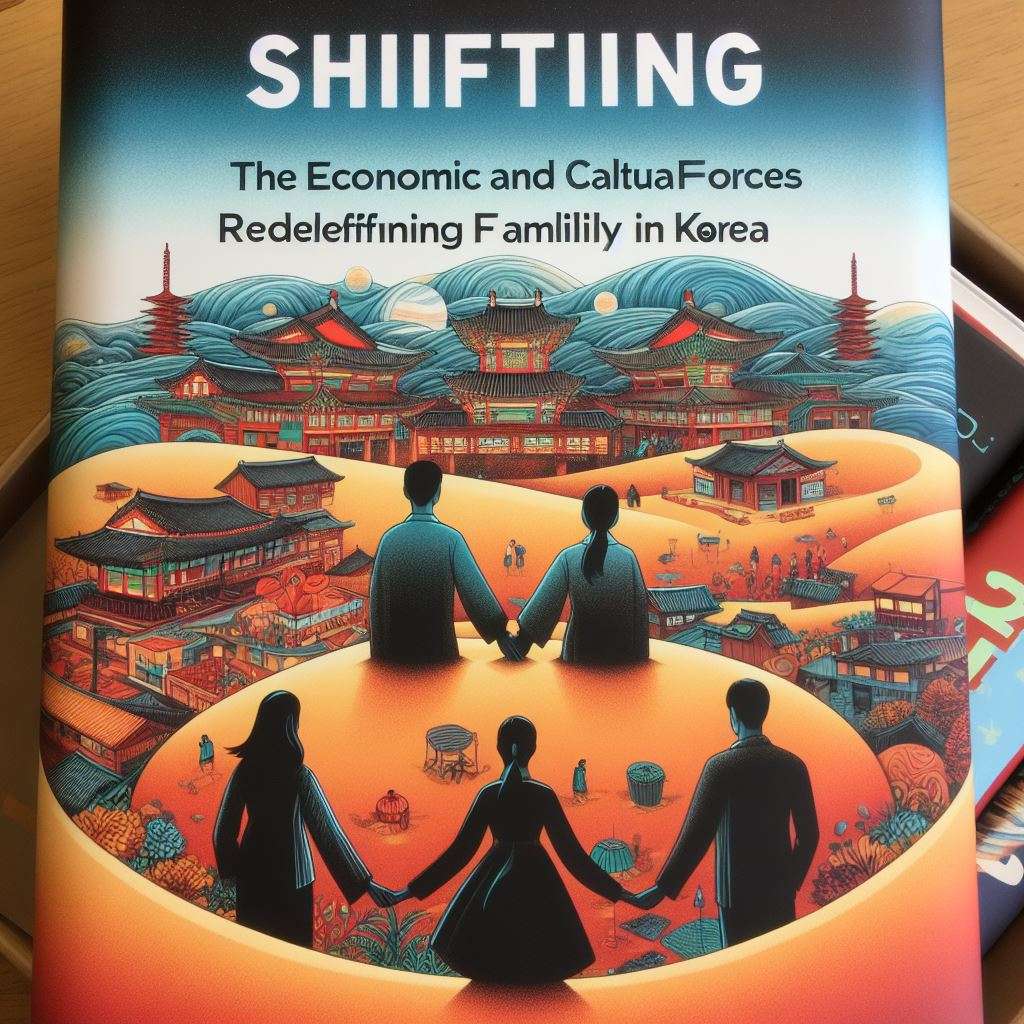I. Introduction

The Korean family structure, historically rooted in Confucian ideals, is undergoing a significant transformation. This metamorphosis is not a sudden upheaval but a gradual shift, influenced by a confluence of economic and cultural forces.
The traditional Korean family, once characterized by extended families living under one roof and defined by strong hierarchical relationships, is now evolving into various forms. This article delves into the intricate web of factors that are redefining the concept of family in Korea, exploring economic pressures, demographic changes, cultural shifts, and the impacts of globalization.
II. Economic Pressures and Their Impact on Family Dynamics
- Rising Living Costs and Housing Prices: The soaring cost of living in major cities like Seoul has profound implications for family life. The burden of high housing prices often delays marriage and childbirth, reshaping the family unit’s size and structure.
- Shift in Employment Patterns: The transition from a manufacturing-based economy to a service-oriented one has altered work-life balance, with long working hours and job insecurity influencing decisions about marriage and family.
- Women’s Increasing Participation in the Workforce: As more women pursue careers, traditional family roles are being redefined. This shift challenges the age-old norms of gender roles within the family, leading to new family structures and dynamics.
III. Demographic Changes and Their Consequences
- Aging Population: Korea’s rapidly aging population, with a low birth rate and increasing life expectancy, has significant implications for family structures. The burden of elderly care is increasingly falling on smaller, younger generations.
- Declining Birth Rates: The plummeting birth rate is transforming the family unit, leading to smaller family sizes and changing the traditional support structure within families.
IV. Korea Cultural Shifts Influencing Family Perceptions
- Changing Attitudes towards Marriage and Childbearing: There is a growing acceptance of diverse family forms, including single-parent families, child-free couples, and non-traditional living arrangements. The emphasis on personal fulfillment and individual careers over traditional family roles is notable.
- Influence of Western Culture: Exposure to Western ideals and lifestyles through media and the internet has influenced Korean perceptions about family life, leading to a blend of Western and traditional Korean values in family structures.
V. Impact of Globalization on Family Structures
- International Marriages: The rise in international marriages introduces new cultural dynamics within Korean families, integrating diverse cultural perspectives and practices.
- Overseas Education and Employment: The increasing trend of pursuing education and career opportunities abroad has implications for family cohesion and dynamics, often resulting in long-distance familial relationships.
VI. The Future of the Korean Family
The Korean family is at a crossroads, navigating between traditional values and modern realities. The economic, cultural, and demographic shifts are not just reshaping the family structure but also redefining the very concept of family in Korea. As these trends continue, it is crucial to understand and adapt to the evolving nature of family life, ensuring that policies and social norms are in tune with these changes.
VII. Conclusion
The transformation of the Korean family is a multifaceted phenomenon, driven by complex and interrelated factors. While this evolution presents challenges, it also offers opportunities for a more inclusive and flexible understanding of family. By recognizing and adapting to these changes, Korean society can foster an environment that supports diverse family structures and responds to the needs of its changing population.
In summary, the Korean family is not just changing; it is being redefined by a myriad of economic, cultural, and demographic forces. This evolution is a testament to the resilience and adaptability of Korean society in the face of global changes and internal shifts. The future of the Korean family, while uncertain, is undoubtedly set to be as dynamic and diverse as the forces shaping it.
Hope in Hardship: The Path to a Brighter Future Amidst Korea’s Family Trends
Hi, I’m [jeybee]. As a long-time resident of Seoul, I’m passionate about uncovering the authentic, everyday magic of Korea. This blog is my way of sharing my favorite spots, tips, and cultural insights with you, beyond the usual tourist traps.

